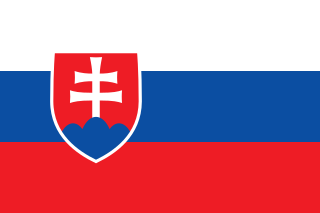
The Corruption Perceptions Index (CPI) is an index that ranks countries "by their perceived levels of public sector corruption, as determined by expert assessments and opinion surveys." The CPI generally defines corruption as an "abuse of entrusted power for private gain". The index is published annually by the non-governmental organisation Transparency International since 1995.

Corruption in Armenia has decreased significantly in modern times, but remains an ongoing problem in the country. Despite this, fighting corruption following the 2018 Armenian revolution has recorded significant progress. Armenia is a member of the Council of Europe's Group of States Against Corruption (GRECO) and the OECD's Anti-Corruption Network and Armenia's anti-corruption measures are regularly evaluated within their monitoring mechanisms.

The Bribery Act 2010 (c.23) is an Act of the Parliament of the United Kingdom that covers the criminal law relating to bribery. Introduced to Parliament in the Queen's Speech in 2009 after several decades of reports and draft bills, the Act received the Royal Assent on 8 April 2010 following cross-party support. Initially scheduled to enter into force in April 2010, this was changed to 1 July 2011. The Act repeals all previous statutory and common law provisions in relation to bribery, instead replacing them with the crimes of bribery, being bribed, the bribery of foreign public officials, and the failure of a commercial organisation to prevent bribery on its behalf.

The Philippines suffers from widespread corruption, which developed during the Spanish colonial period. According to GAN Integrity's Philippines Corruption Report updated May 2020, the Philippines suffers from many incidents of corruption and crime in many aspects of civic life and in various sectors. Such corruption risks are rampant throughout the state's judicial system, police service, public services, land administration, and natural resources.

This article discusses the responsibilities of the various agencies involved in combating corruption in New Zealand. New Zealand is regarded as having one of the lowest levels of corruption in the world.

In Transparency International's 2023 Corruption Perceptions Index, which scored 180 countries on a scale from 0 to 100, Bahrain scored 42. When ranked by score, Bahrain ranked 76th among the 180 countries in the Index, where the country ranked first is perceived to have the most honest public sector. For comparison with worldwide scores, the best score was 90, the average score was 43, and the worst score was 11. For comparison with regional scores, the average score among Middle Eastern and North African countries was 34. The highest score among Middle Eastern and North African countries was 68 and the lowest score was 11.

Corruption in North Korea is a widespread and growing problem in North Korean society.

Corruption in Turkey is an issue affecting the accession of Turkey to the European Union. Transparency International's Corruption Perception Index scores 180 countries according to their perceived level of public sector corruption on a scale of 0 to 100. Since the current scale was introduced in 2012, Turkey's score has fallen from its highest score of 50 (2013) to its lowest, current score of 36 (2022). When the 180 countries in the Index were ranked by their score, Turkey ranked 101 in 2022.

Corruption laws exist in Egypt to criminalize extortion, embezzlement and bribery in business, but they are poorly enforced.

Corruption in Sweden has been defined as "the abuse of power" by Swedish National Council for Crime Prevention (Brå). By receiving bribes, bribe takers abuse their position of power, which is consistent with how the National Anti-Corruption Unit of the Swedish Prosecution Authority specifies the term. Although bribes and improper rewards are central in the definition of corruption in Sweden, corruption in the sense of "abuse of power" can also manifest itself in other crimes such as misuse of office, embezzlement, fraud and breach of trust against a principal.

Corruption in Switzerland describes the prevention and occurrence of corruption in Switzerland.

Corruption in Latvia is examined on this page.

Transparency International's 2022 Corruption Perceptions Index scored Germany at 79 on a scale from 0 to 100. When ranked by score, Germany ranked 9th among the 180 countries in the Index, where the country ranked first is perceived to have the most honest public sector. For comparison, the best score was 90, the worst score was 12, and the average score was 43.

Corruption in the Netherlands is minimal in all major areas—judiciary, police, business, politics—as the country is considered one of the least corrupt within the European Union.

Corruption in Slovenia is examined on this page.

Corruption in Slovakia is a serious and ongoing problem.

Petty and grand corruption is a growing problem within Morocco. A leaked report by a US diplomat stated in 2009 that corruption had become much more institutionalized under King Mohammed VI, and that the royal family had been using public institutions to coerce and solicit bribes.

Corruption levels are perceived to be high by surveyed residents of Serbia, and public trust in key institutions remains low.

Corruption in Vietnam is pervasive and widespread, due to weak legal infrastructure, financial unpredictability, and conflicting and negative bureaucratic decision-making. Surveys from 2015 revealed that while petty corruption decreased slightly throughout the country, high-level corruption significantly increased as a means of abuse of political power in Vietnam. Corruption is a very significant problem in Vietnam, impacting all aspects of administration, education and law enforcement.

There is evidence that corruption is a legitimate problem in Israeli politics and many investigations have taken place into allegations of influence peddling and bribery.




















